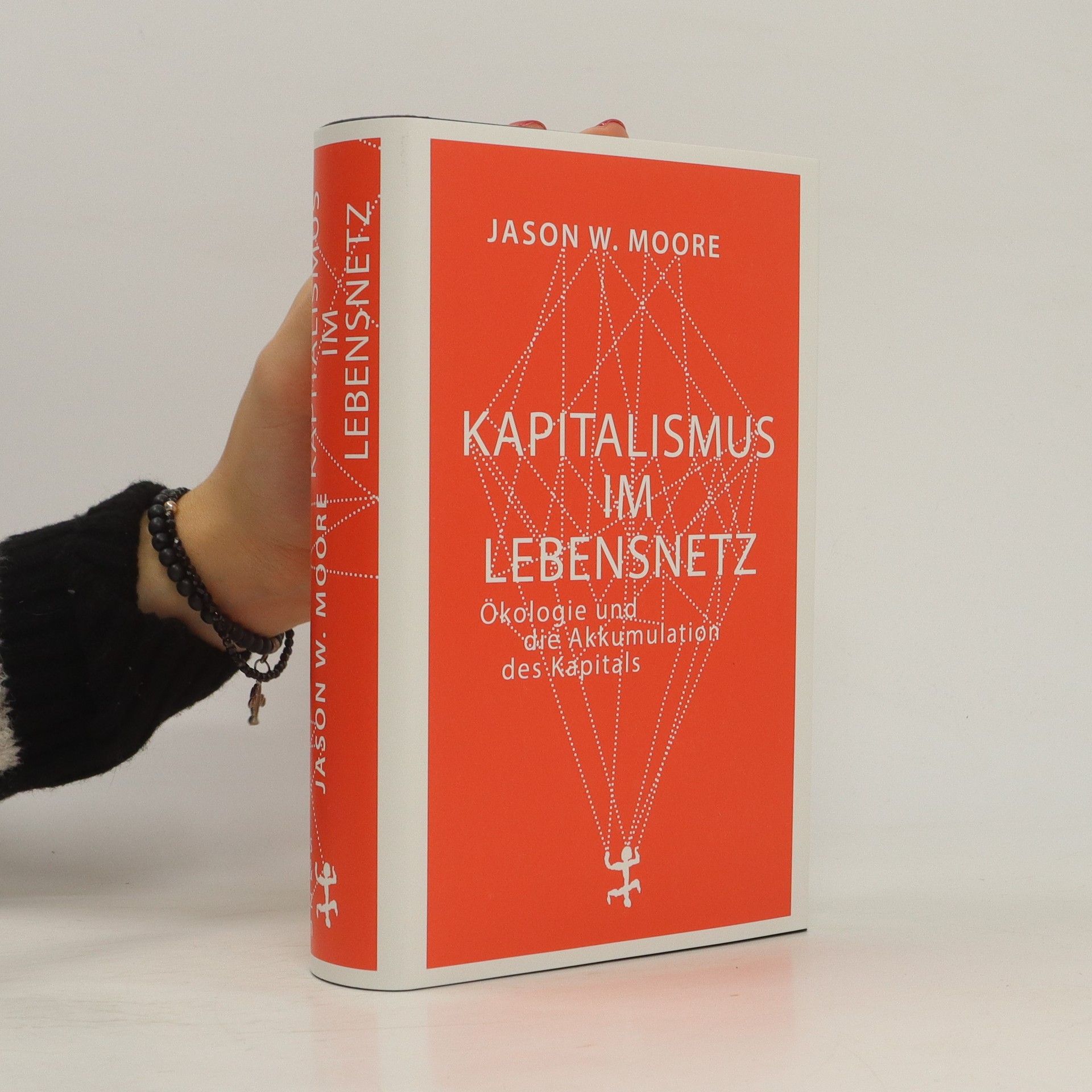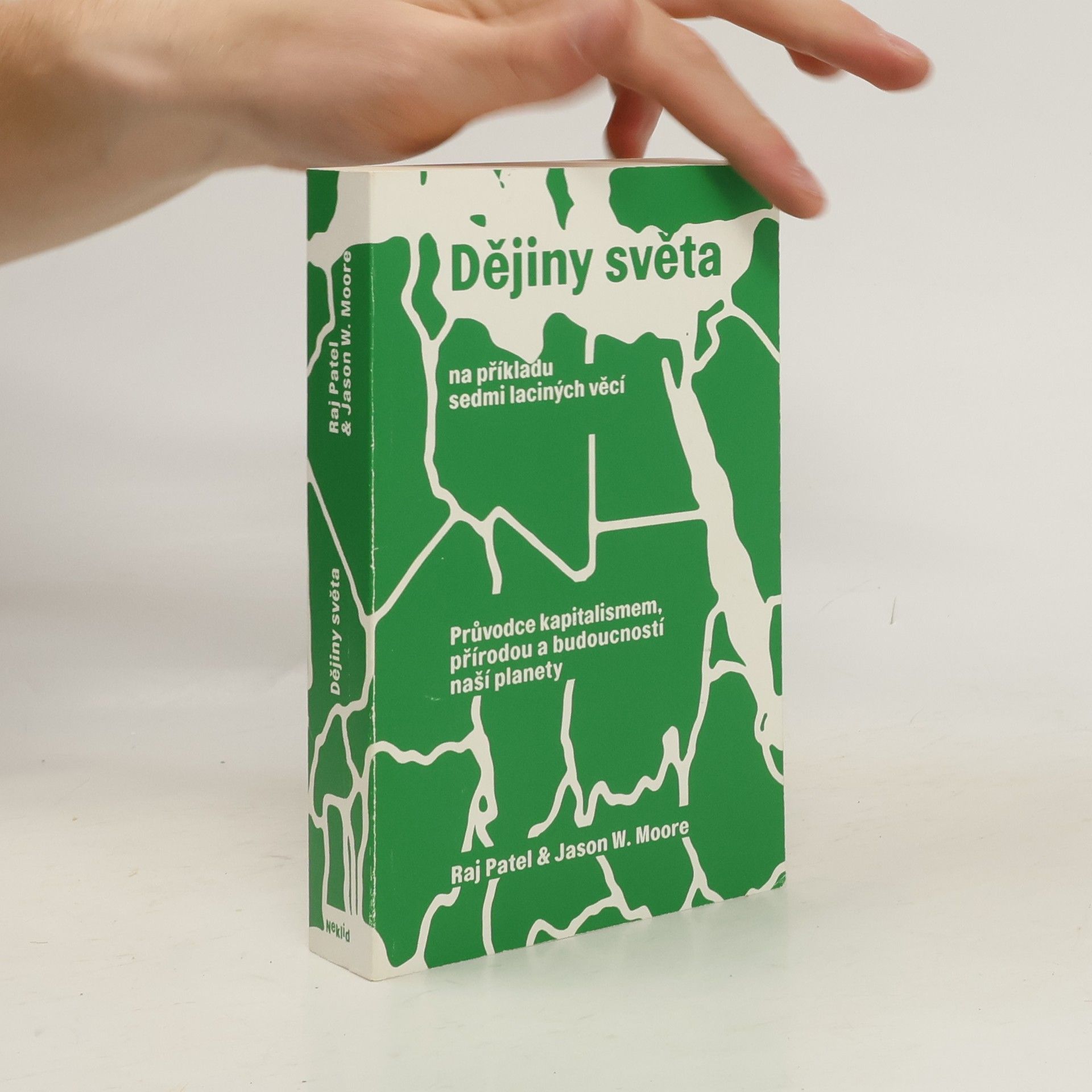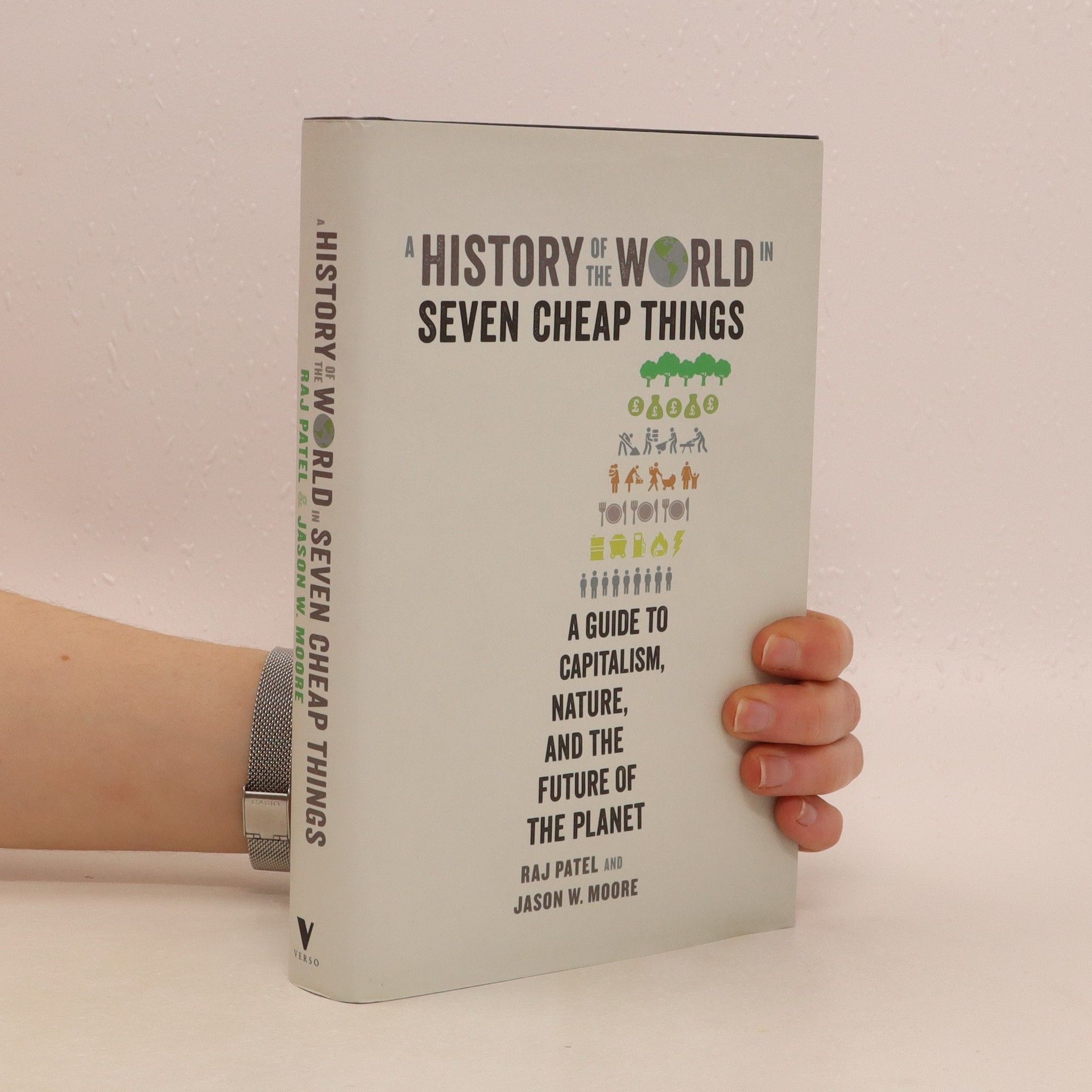Nature, money, work, care, food, energy, and lives- these are the seven things that have made our world and will shape its future. In making these things cheap, modern commerce has transformed, governed, and devastated Earth. In A History of the World in Seven Cheap Things, Raj Patel and Jason W. Moore present a new approach to analysing today's planetary emergencies. Bringing the latest ecological research together with histories of colonialism, indigenous struggles, slave revolts, and other rebellions and uprisings, Patel and Moore demonstrate that throughout history, crises have always prompted fresh strategies to make the world cheap and safe for capitalism. At a time of crisis in all seven cheap things, innovative and systemic thinking is urgently required. This book proposes a radical new way of understanding - and reclaiming - the planet in the twenty-first century.
Jason W. Moore Livres
Jason W. Moore est un historien environnemental et géographe historique qui enquête sur la relation complexe entre le capitalisme et la nature. Son travail se concentre sur la manière dont les formations historiques du capitalisme ont façonné la planète, en examinant comment cette dynamique se manifeste dans la crise environnementale actuelle. Moore analyse comment les problèmes écologiques et sociaux sont intrinsèquement liés à la logique de l'accumulation du capital. Ses analyses offrent des perspectives critiques sur les origines profondes du changement climatique contemporain et des inégalités socio-économiques.




Dějiny světa na příkladu sedmi laciných věcí: Průvodce kapitalismem, přírodou a budoucností naší planety
- 360pages
- 13 heures de lecture
Příroda, peníze, práce, péče, potraviny, energie a životy: na těchto sedmi věcích stojí svět, ve kterém žijeme, a také jeho budoucnost. Moderní obchod z nich udělal pouhé laciné artikly, a tím proměnil, ovládl a zdevastoval Zemi. V Historii světa v sedmi laciných věcech rozvíjejí autoři Raj Patel a Jason W. Moore nový přístup k pochopení současných planetárních krizí. Spojují dohromady nejnovějšího výzkumu v ekologii s historií kolonialismu, dějinami bojů původních obyvatel, vzpour otroků a dalších povstání a bouří a ukazují, že v minulosti vedly krize vždy k vynálezům nových strategií, jak svět ještě více zlacnit a usnadnit přežití kapitalismu. V čase, kdy se v krizi ocitá všech sedm laciných věcí, je urgentně třeba nového a systémového myšlení. Tato kniha přináší radikálně nový způsob pochopení - a znovuzískání - naší planety v turbulentním 21. století.
Erderwärmung, Naturkatastrophen, Finanzcrash und Hungersnöte prägen das 21. Jahrhundert mit globalen Krisen. Diese Herausforderungen sollten nicht isoliert betrachtet werden, sondern im Kontext des Kapitalismus, der als Naturereignis verstanden werden muss. Der Kapitalismus entsteht aus der Wechselwirkung von Natur und Gesellschaft, die es ihm ermöglicht, Ressourcen wie landwirtschaftliche Flächen und mineralische Schichten zu nutzen und auszubeuten. In dieser Perspektive wirkt der Kapitalismus nicht gegen die Natur, sondern innerhalb von ihr. Um die Dynamik des Kapitalismus zu begreifen, ist es entscheidend, die Natur historisch zu betrachten und das dialektische Zusammenspiel zwischen Kapitalakkumulation und der Schaffung billiger Ressourcen, Nahrung, Energie und Menschenreproduktion zu analysieren. Die aktuellen Krisen sind folglich Ausdruck vorprogrammierter Systemfehler, da die Umwelt eng mit Produktionsweisen, Klassenstrukturen und Zivilisationstechniken verbunden ist. Die historische Betrachtung von Natur und Kapitalismus ist somit von zentraler Bedeutung. Jason W. Moore formuliert die These, dass die Trennung von Natur und Gesellschaft direkt für die Gewalt, Ungleichheit und Unterdrückung in der modernen Welt verantwortlich ist und dass die Auffassung von Natur als etwas Äußeres eine grundlegende Bedingung der Kapitalakkumulation darstellt.